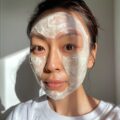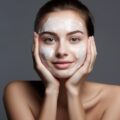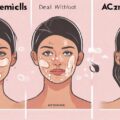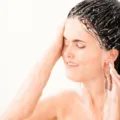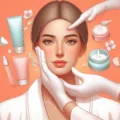Exploring a Self-Care Trend with Openness
A soothing gel from Japan recently gained attention on TikTok for its purported skin benefits. As self-care practices spread globally, it presents an opportunity to learn about different cultural approaches to wellbeing. However, viral trends don’t always tell the whole story. By learning more context, we can make informed decisions while avoiding assumptions.
Understanding the “Cure” Gel
The gel contains ingredients often found in Japanese skin care, like rice ferment and botanical extracts. It promises to hydrate skin using time-tested Eastern medicine. The packaging features natural imagery that appeals to eco-conscious shoppers.
However, some dermatologists question if the formulation lives up to its claims. Research on specific ingredients is limited too. This shows the importance of consulting experts when evaluating self-care products.
Behind Viral Sensations
When trends spread rapidly online, they gain attention but not always accuracy. Details get left out or exaggerated. Yet going viral sparks curiosity and conversation, which has value.
Rather than accepting or dismissing trends at face value, we can respond with discernment. If a product intrigues you, learn about its origins and effects independently. Talk to skincare professionals. And notice if your interest comes more from FOMO than genuine benefits.
Finding What Works for You
Self-care should nourish your mind, body and spirit. It goes beyond skin deep. A gel that heals blemishes won’t necessarily soothe anxiety or loneliness.
Instead of looking externally for transformation, focus inward. Pay attention to what makes you feel authentically nurtured. Move your body, connect with loved ones, spend time in nature, express your creativity. The most impactful self-care is simple and accessible to all.
FAQ
What gel went viral on TikTok?
A soothing gel from Japan gained attention for its supposed skin enhancing properties.
What are some examples of self-care?
Self-care can include physical activity, connecting with loved ones, being creative, spending time in nature and other practices that are mentally, emotionally or physically nourishing.
How do I evaluate if a self-care product is right for me?
Look beyond marketing claims and viral trends. Consult skincare professionals to understand if ingredients are backed by research. Most importantly, pay attention to if using the product leaves you feeling authentically nurtured.
What should I keep in mind with self-care trends?
Viral sensations often lack nuance or leave out important context. Consider if FOMO drives your interest more than the potential benefits. Focus on self-care practices that make sense for your individual needs.
Are there risks of trying self-care fads?
Trendy products likely won’t address underlying emotional needs. Quick fixes often promise more than they deliver. Look inward instead for accessible self-care wisdom that serves you best.


